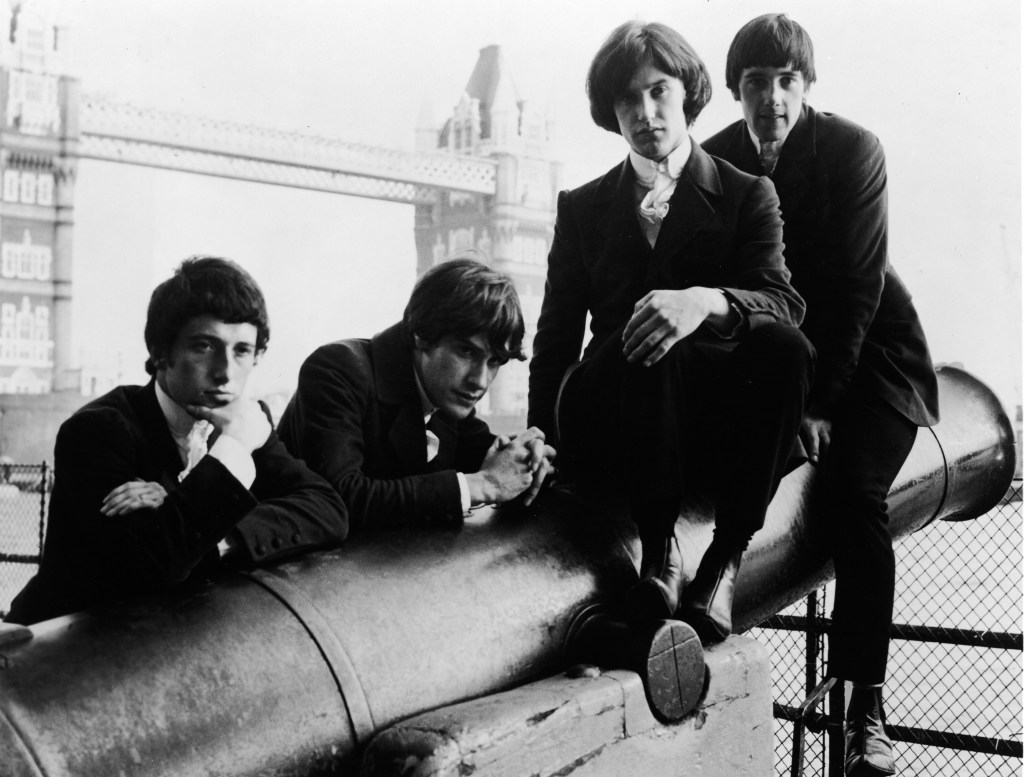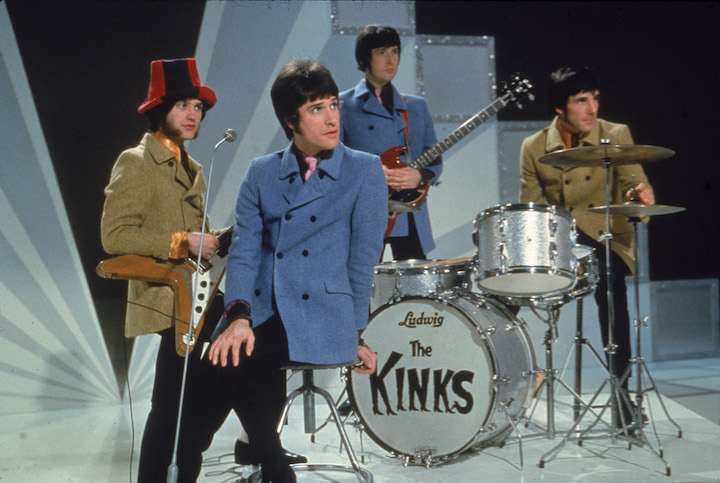It’s been 60 years since Muswell Hill brothers Ray and Dave Davies – then 19 and 15 respectively – formed The Kinks. What is now known as the ‘catalogue’ division of record companies love an anniversary, particularly when fans of the band are likely to be edging into pensionable disposable-income territory. And so, a new compilation titled The Journey has arrived, with 36 tracks curated by the brothers from across The Kinks’ 30 years of active service, which have been scrubbed up to sound better than ever. It’s fitting that a band which sang a lot about heritage and preservation – very unusually for the young men that they were at the time – should, in turn, be added to that heritage and preserved.
Listening to these songs again, I’m struck by how vital and varied they are, and how, unlike most pop music (which rightly lives only for its moment), The Kinks transcended their time to capture the British character more completely than almost anything and anybody else.
It must be very irritating for Ray Davies to reflect on how, if The Beatles hadn’t come along, he’d be regarded as the greatest songwriter of his age. I have always preferred The Kinks – for me The Beatles lose a point for always sounding so strangely clean. No matter how hard John Lennon tried, The Beatles are an amiable listen. Any group that contains a member as loveable and sane as Ringo cannot really frighten the horses. By contrast, The Rolling Stones are all about sex, even in their quieter moments.
The Kinks combine the two extremes of melody and raunch and add something that could only be their own. Despite their name, they are not sexy in themselves (though Dave has his moments). Their first hits were punkishly raucous and erotically charged by the standards of 1964, but they spread their wings very soon afterwards, blooming into a remarkably versatile musical unit that could turn from country to stadium rock to lightweight pop to blues to music hall at the click of Ray’s fingers. The dynamic between the two very different brothers is the fuel for it all. Ray looks worried even when he is promising to love you all day (and all of the night). Dave looks like he’s won the pools even when he’s singing about an alcoholic clown expiring alone.

In the 90s The Kinks were briefly name-dropped by and stamped with the approval of certain elements of the Britpop scene, but this was reducing something to one aspect when it contains multitudes. The elegiac quality of some of their most familiar hits – Waterloo Sunset, Shangri-La or Days – is a key part of their appeal. But only a part.
To some listeners, an album such as The Village Green Preservation Society might seem positively fogeyish and nimbyish – but we must remember that Ray was only 23 years old when he wrote it. These songs are not rose-tinted personal recollections of long-ago youth, but a celebration of Britishness.
Many have laid claim to being the voice of the British people, but for my money the Kinks are the closest there’s been
They say that the world of the past, which in the era of modernity can be both so recent and so different, is worth evaluating and remembering. Songs such as Harry Rag (an ode to cigarettes), Where Are They Now (a lament for the 60s released in 1973) or Come Dancing (an unbearably poignant remembrance of one of Ray and Dave’s older sisters) each contain the richness of a novel; impressive given that these observations come in the form of three-minute pop ditties.
A sensitivity reader (thankfully they haven’t moved into the musical publishing arena, yet) would splutter at the lyrics to songs like Victoria (‘For this land, I shall die / Let her sun never set’) and Living on a Thin Line (‘All the stories have been told / Of kings and days of old / But there’s no England now’).
Out of context they sound almost Enoch Powellian – but this is putting the wrong frame around the picture. The Kinks are equal opportunities haters, their body of work very much a cry of a plague on all political houses – against the ‘corruption’ of the ‘money-go-round’ and also against the welfare state. The sprawling triple album Preservation showcases two appalling demagogues of right and left, Mr Flash and Mr Black. The Kinks also have a big heart, with compassion for the cruel and drunken taxed-to-nothing lord of the manor of Sunny Afternoon and for the wretched left-behinds of Dead End Street.
The Journey is just the first half of a new greatest hits album, each disc curated around a different theme. Some of the bangers are missing, but they will arrive in part two, presumably.
Hopefully my personal favourite, Sweet Lady Genevieve, will be included; how it wasn’t a number one hit (it didn’t even chart) I’ll never fathom. Maybe the lyrics – this is a love song which confesses ‘I told you never ending lies’ in its first line – are just too painful and emotionally complex for a singalong. The first half of The Journey is focused on emotions and relationships; I presume the second half will contain the social comment.
Many have laid claim to being the voice of the British people, but for my money the Kinks are the closest there’s been. The suspicion of the state, the distrust of big ideas, the strong sense of place and continuity – all the things nobody in culture speaks up for today but which turn up in polling again and again. The Kinks can’t be claimed by anyone. They were, and are, their own men. Anyone who wants to understand the British – or the British to understand ourselves – should listen.







Comments